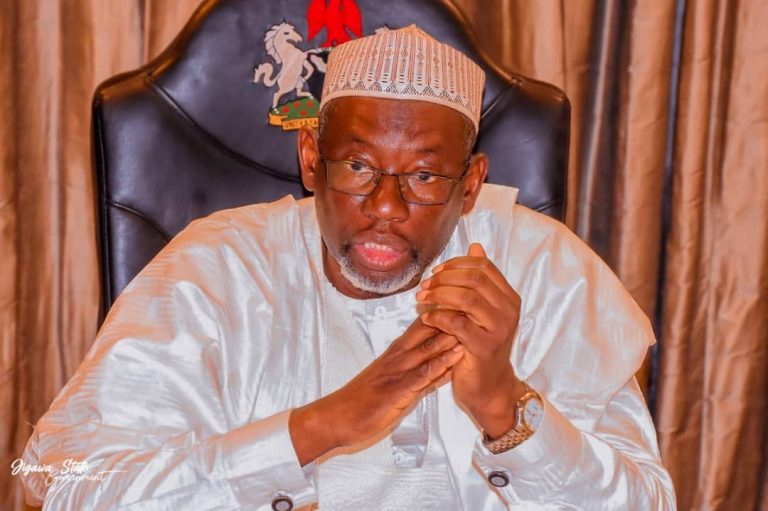The Governor of Jigawa state, Umar Namadi has stated that the present insurance policies of the federal authorities on agriculture particularly wheat manufacturing are able to making certain self-sufficiency in wheat manufacturing and even for exports.
Governor Umar Namadi of Jigawa State disclosed this following a briefing with President Bola Ahmed Tinubu on varied developmental issues within the state.
Through the dialogue, Governor Namadi expressed gratitude to the President for earmarking 40,000 hectares of land within the state for the Nationwide Wheat Improvement Programme.
Governor Namadi outlined the formidable goal of manufacturing two million tonnes of wheat by means of each the Nationwide Wheat Improvement Programme and the state’s initiative, aiming for meals sufficiency and potential export.
He highlighted Nigeria President’s supportive stance, emphasizing the reassurance of full backing to make sure the profitable realization of those targets.
In November 2023, the Nigerian Authorities initiated the dry season program in Jigawa, allocating a complete of 100,000 hectares for wheat farming nationwide, with Jigawa State receiving 40,000 hectares particularly for this system.
Governor Namadi conveyed Nigeria President’s dedication to offering all essential assist to the state authorities in attaining its outlined goals.
What the Governor stated
He acknowledged,
- “We’re primary in wheat in Nigeria. So, the difficulty is now we have already made a distinction as a result of we’re primary. After which at the moment like I instructed you out of 120,000 hectares for Nigeria, Jigawa State alone is given 40,000 hectares and that exhibits that we’re making a distinction.”
On whether or not Nigeria may attain wheat sufficiency in Nigeria, he stated:
- “Actually, we’ll. In Jigawa State, now we have a FADAMA land of over 400,000 hectares. So, that’s solely FADAMA land that we are able to domesticate each in wet and dry season.”
When requested about the potential for exporting the wheat, Namadi stated:
- “Actually, we’re going to export wheat over time We’re doing the primary one, after which after this one, we’re going for rice, and the subsequent one, we’re going to wheat, that’s how the cycle will proceed to go. We’re going to have meals sufficiency and we’ll have”
What it’s best to know
Nigeria has been poor in wheat manufacturing counting on imports to fulfill native calls for.
Nonetheless, the battle between Russia and Ukraine coupled with the collapse of the Black Sea grain deal created a provide shortfall which elevated wheat costs internationally.
Between October 2022 and September 2023, Nigeria spent round N970 billion on wheat imports.
Within the first 9 months of 2023, Nigeria spent round N783.26 billion on wheat imports primarily from Latvia, Canada, Lithuania, the USA, Poland, and Argentina.

